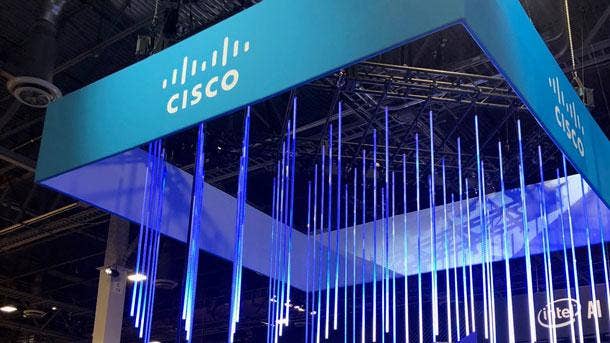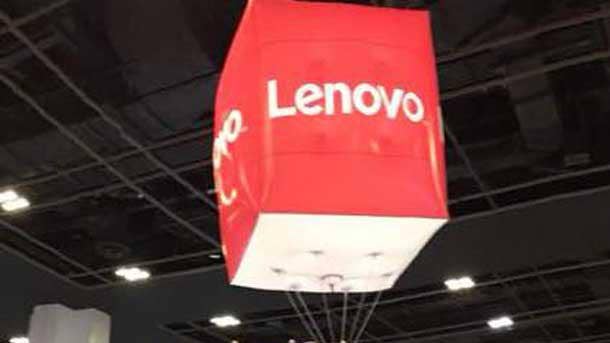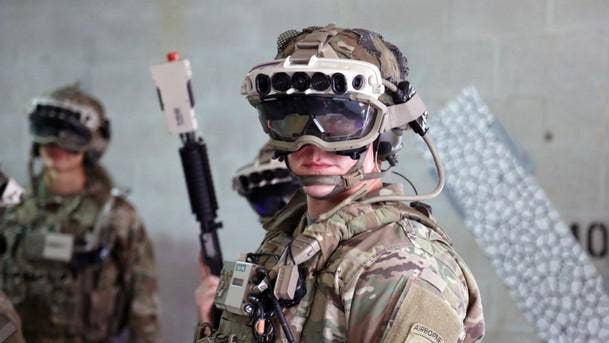5 Companies That Came To Win This Week
For the week ending April 2, CRN takes a look at the companies that brought their ‘A’ game to the channel.

The Week Ending April 2
Topping this week’s Came to Win list is Cisco Systems for detailing its as-a-service strategy for partners.
Also making the list are Lenovo for creating a new services organization the company said will help partners sell the company’s TruScale as-a-service offerings, Hitachi for a strategic acquisition in digital transformation services, cybersecurity startup Opswat for an impressive round of funding, and Microsoft for a big U.S. Army contract win for its HoloLens augmented/virtual reality technology.

Cisco As-A-Service Strategy Takes A Giant Leap Forward
Making good on its 2020 promise to deliver the majority of its technology portfolio available “as a service” over time, Cisco Systems this week detailed its strategy for providing new ways for partners and customers to buy and consume its hardware, software and services.
The new Cisco Plus strategy is, at its core, a financial model that will let more partners sell IT as a service without having to cobble together their own solutions and take on added risk. Cisco, which held its Cisco Live virtual conference this week, introduced flexible consumption models for its networking and hybrid cloud offerings.
The Cisco Plus networking-as-a-service (NaaS) model will let partners and customers operate and maintain their network without building, owning or maintaining their own infrastructure. A secure access service edge (SASE) product will be the first available offering.
The new Cisco Plus Hybrid Cloud solution as-a-service includes Cisco’s entire data center compute, networking and storage portfolio, along with third-party storage and software – all combined in on-premises, edge and public cloud systems in a flexible consumption model.
Cisco also continues to boost the capabilities of its WebEx collaboration service and this week Cisco executives vowed to gain market share from competitors like Zoom.

Lenovo Launches New Services Organization
Lenovo is doubling down on driving services revenue for the channel by launching a new Solutions and Services Group that the company said will help partners win more TruScale as-a-service deals and opportunities spanning the company’s broad technology product portfolio, from PCs to data center infrastructure.
TruScale Infrastructure Services is Lenovo’s consumption-based, as-a-service offering that now covers almost the company’s entire product portfolio.
The new Solutions and Services Group brings together Lenovo’s services and solutions teams and capabilities across its devices, PCs and infrastructure systems operations to create a new dedicated services organization aimed at driving services sales.
Steve Biondi, head of channel sales and alliances in North America for Lenovo’s Infrastructure Solutions Group, emphasized that the new services group will not compete against channel partners’ services. He said it will provide partners with service enablement for Lenovo’s TruScale and Device-as-a-Service offerings.

Hitachi To Buy GlobalLogic For $9.6B In Digital Transformation Bid
Sticking with the services topic, Hitachi has struck a deal to buy digital engineering services company GlobalLogic in a move to bring digital transformation services to its channel partners and customers and expand the range of services available for the company’s product lineup, including its Lumada business analytics platform.
The $9.6 billion deal is a significant step for Hitachi, which today is primarily a product-focused company with depth in industrial products. Hitachi said that with digital transformation trends accelerating, it’s important for the company to have the service capabilities and expertise to help both Hitachi itself and its customers in their digital transformation initiatives.
The move is expected to help channel partners who work with Lumada and other products from Hitachi Vantara, Hitachi’s U.S. subsidiary. The acquisition will allow partners to add digital transformation and engineering services depth to those products.

Opswat Raises $125M To Scale Channel En Route To IPO
Cybersecurity startup Opswat raised $125 million this week in the company’s first-ever funding round, capital the developer of critical infrastructure protection technology will use to pursue strategic acquisitions, double down on demand generation and increase its roster of channel partners.
By investing in its channel operations, Opswat plans to grow the amount of business flowing through partners from 50 percent today to 75 percent three years from now. The company also will apply some of the new financing to strengthening its internal reporting and compliance processes and make a couple of acquisitions before going public.
Also scoring in the funding department this week was multi-cloud data protection vendor HYCU, which this week closed an $87.5 million round – the company’s first. The company initially developed its technology for Nutanix environments and has since expanded to providing data protection for VMware environments, the Google Cloud Platform, Microsoft Azure workloads and VMware of AWS.

Microsoft Wins $21.9B Army Contract With Its HoloLens Tech
Microsoft scored a big win for its HoloLens mixed-reality technology this week when the company said it had been awarded a massive contract valued at $21.9 billion to produce HoloLens-based headsets for the U.S. Army.
That puts the value of the contract at more than twice the value of the JEDI cloud computing contract that Microsoft won in 2019 but which remains on hold amid legal challenges from Amazon Web Services.
Under the Army contract, with a duration up to 10 years, Microsoft will produce more than 120,000 Integrated Visual Augmentation System (IVAS) headsets based on Microsoft’s HoloLens 2 technology. HoloLebs 2 combines elements of virtual and augmented reality for a range of business, government and military applications. The headsets also will include technology such as night-vision systems and thermal sensors.
The huge contract is seen as a validation of the HoloLens technology and Microsoft’s mixed VR/AR approach.